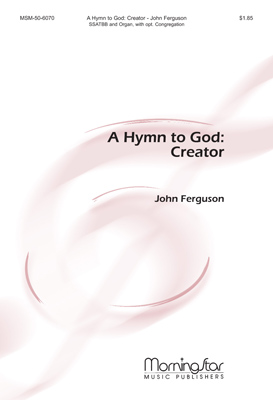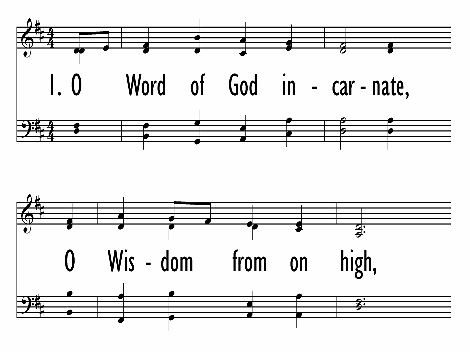Scripture References:
st. 1 = Ps. 119:105, 130, John 1:1-14
st. 2 = 2 Tim. 3:15-17
st. 3 = Matt. 5:14-16, 1 Cor. 13:12
The prevalent image in this hymn is light: God is the Light; his Word is a light for our path; and we, the church, must be a light for the nations. The author, William W. How (b. Shrewsbury, Shropshire, England, 1823; d. Leenane, County Mayo, Ireland, 1897), first published it with a subhead quotation from Proverbs 6:23: "For the commandment is a lamp: and the law is light; and reproofs of instruction are the way of life" (KJV). Some hymnodists have stated that the song is based on Psalm 119:105, which contains nearly the same imagery: "Your word is a lamp to my feet and a light for my path." Using intriguing word play, the hymn praises Christ as the "Word of God incarnate" and as the "Light" who has given us Scripture (often referred to as God's Word) as a "light" ("lantern") to guide the church (st. 1-2) and to inspire it to be a "lamp" for shining God's "light" to all the world (st. 2-3). The text also includes travel imagery: "footsteps" (st. 1), "chart and compass," "voyage" (st. 2), and "pilgrims" (st. 3).
Singing this text, we pray that the church, the people of God, will always be led by the Scriptures to seek Christ, to whom the Scriptures point, and to bring the good news of his Word to the nations. This text was first published in the 1867 addition to Psalms and Hymns (1854), a supplementary collection How edited with Thomas B. Morrell.
How studied at Wadham College, Oxford, and Durham University and was ordained in the Church of England in 1847. He served various congregations and became Suffragan Bishop in east London in 1879 and Bishop of Wakefield in 1888. Called both the "poor man's bishop" and "the children's bishop," How was known for his work among the destitute in the London slums and among the factory workers in west Yorkshire. He wrote a number of theological works about controversies surrounding the Oxford Movement and attempted to reconcile biblical creation with the theory of evolution. He was joint editor of Psalms and Hymns (1854) and Church Hymns (1871). While rector in Whittington, How wrote some sixty hymns, including many for children. His collected Poems and Hymns were published in 1886.
Liturgical Use:
As a sung prayer for illumination and for the preservation and mission of the church.
--Psalter Hymnal Handbook, 1988
========================
O Word of God Incarnate. Bishop W. W. How. [Holy Scriptures.] Written for and first published in the 1867 Supplement to Morrell and How's Psalms & Hymns. It has been repeated in a large number of hymn-books in Great Britain and America, and is one of the author's most popular hymns. It is usually given unaltered and unabridged as in Church Hymns, 1871.
--John Julian, Dictionary of Hymnology (1907)


 My Starred Hymns
My Starred Hymns








